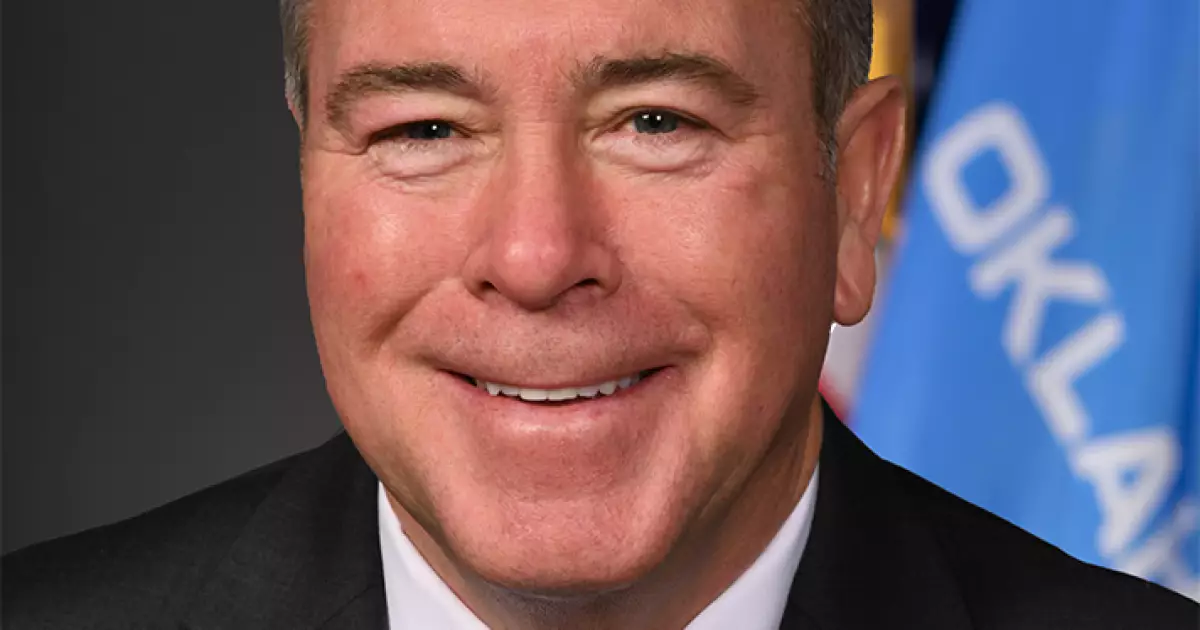In the world of public administration, transparency and accountability are cornerstones of effective governance. However, recent events surrounding Oklahoma Treasurer Todd Russ and his office seem to challenge these principles. The treasurer, along with his chief of staff, Jordan Harvey, faces a lawsuit filed by FOIA Professional Services, LLC, an organization dedicated to managing public records requests. The allegations hinge on claims of document destruction and the withholding of information related to a contentious state law that directly targets environmental, social, and governance (ESG) investment practices.
At the heart of this controversy is the Oklahoma Energy Discrimination Elimination Act of 2022, legislation designed to bar state and local government contracts exceeding $100,000 with firms deemed to be boycotting the fossil fuel industry. In July, this act was permanently blocked by a district court judge following a lawsuit from a pension recipient. This ruling paints a stark picture of a legislative measure that may have overstepped legal boundaries, as it attempted to enforce restrictions based on an ideological stance against certain investment practices, specifically those that align with ESG principles.
Underneath this legal framework, Treasurer Russ compiled an impactful list of major financial institutions, such as Barclays, Bank of America, and JP Morgan Chase, effectively barring them from future contracts with the state. The repercussions of this list were felt in the financial sector, as evidenced by Wells Fargo’s withdrawal from a significant bond deal shortly after being included.
The lawsuit filed on October 17, 2023, brings to light serious allegations against Russ, Harvey, and their office. FOIA Professional Services claims that the treasurer’s office did not fully comply with their requests for documents regarding both the decision-making processes that led to the creation of the restricted list and the communications surrounding those decisions. The complaint further asserts that certain emails potentially containing vital information were either deliberately withheld or destroyed, specifically those involving communications with external parties about ESG-related inquiries directed at BlackRock and other firms.
The implications of these claims could be monumental. If true, they could suggest a deliberate evasion of transparency obligations, raising questions not only about the legality of the actions taken by the Treasurer’s office but also about the ethical considerations of such practices in public governance. The allegation involving the use of personal email accounts for state business significantly escalates the severity of the situation, invoking broader concerns regarding compliance with public records laws.
One of the alarming revelations within the lawsuit is the assertion that documents forwarded to Harvey’s personal email were not provided in response to public records requests. These documents reportedly contained insights and communications critiquing the ESG policies of major financial entities. An email sent by Harvey includes discussions about preparations for Governor Kevin Stitt’s scheduled meeting with BlackRock, suggesting the importance of these communications about state policymaking.
The lawsuit emphasizes that the failure to disclose documents from “friends in DC” raises red flags regarding the transparency practices upheld by the Treasurer’s office. With the nature of the discussions tied specifically to investor relations and executive actions, the allegations evoke questions about the integrity and accountability of state officials when engaging with financial institutions.
Despite the mounting legal pressure, the Treasurer’s office has largely remained non-communicative about the specifics of the allegations. A spokesperson mentioned that the office routinely works with various organizations to fulfill document requests. However, the lack of communication regarding the disputed emails has been concerning. This absence of clarity not only complicates the ongoing legal battle but also fosters public distrust in the office’s commitment to transparency.
The nature of the law in question, combined with the allegations surrounding its enforcement, creates an environment ripe for scrutiny. Given that the actions undertaken by the Treasurer’s office have national implications regarding ESG investment practices, the outcome of this lawsuit could ripple throughout the finance sector and influence legislative attitudes toward similar measures across the United States.
The unfolding situation around Todd Russ and his office serves as a poignant reminder of the importance of transparency within public governance. As the lawsuit develops, the necessity for clarity in communication and adherence to ethical standards will remain critical. If the allegations surrounding the withholding and possible destruction of documents prove valid, the implications for accountability in public service could be profound, creating a pressing need for reforms that ensure all public representatives act in accordance with both the law and the public’s best interests. In a climate where accountability is increasingly demanded, the resolution of this case will likely set a precedent for how similar cases are treated in the future.


Leave a Reply